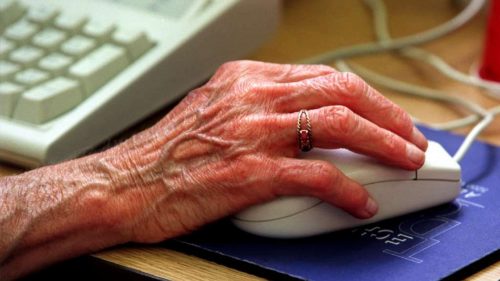My Mom is Living with Alzheimer’s, But We’re Some of the Lucky Ones.
COMMENTARY

Six years ago, my mother started to show signs of dementia. She would constantly lose personal items around the house and often became confused in casual conversations. I wish that was the worst of it.
Months later, she began to hallucinate that there was a boy living on top of her refrigerator. Eventually, I discovered she gave all her money away to mail-order psychics who promised her riches.
We turned to her doctor, who referred us to a neurologist. I remember the day we went to his office in the Bronx, where Black and Brown people like us packed the waiting room. After a series of tests, he told us dryly that she had Alzheimer’s disease and that we should “Google it.” I went home and cried. My dad and my sister have passed away so it has just been my mom and me for a long time.
Despite her diagnosis, I’ve come to realize we are actually some of the lucky ones. Through all the ups and downs, I’ve been able to care for her without missing a paycheck. Sadly, most employed dementia caregivers cannot say the same. According to UsAgainstAlzheimer’s, less than half of dementia caregivers have access to workforce policies such as paid family and medical leave.
Eventually, my mom was accepted into a clinical trial – making her one of the few Afro-Latinas enrolled in research supported by the National Institutes of Health. I was thrilled, but the schedule was grueling. She had to take medicine at a certain time, but she couldn’t take it on her own. Each week she had to visit with a series of different doctors, which meant coordinating transportation and appointments. We barely had enough money to cover the cost of the 45-minute Uber ride to the hospital.
I shudder to think how any of this would’ve been possible if I didn’t have a job with flexibility. Unfortunately, for millions of dementia caregivers across the country, that nightmare is their reality.
It’s simply unacceptable that the United States is the only high-wealth country without a paid leave program. No hard working person in this country should be forced to choose between caring for a loved one and making a living. It’s heartbreaking and it’s hurting our economy.
When I think of the people lined up along the walls of that doctor’s waiting room, I’m reminded how the lack of access to paid leave is not a burden Americans share equally. According to the National Partnership for Women & Families, compared with White workers, Latino workers are 66% less likely, Black workers 83% less likely and Native American, Pacific Islander and multiracial workers 100% less likely to be able to take leave when needed.
A national paid leave policy would help alleviate the many challenges facing working family caregivers – especially women and people of color – who often struggle to be in two places at once: at home providing daily critical care needs to those who rely on them and at work supporting their co-workers and earning an income. It would especially help many people in my situation, who are sandwiched between providing care for a loved one living with a chronic disease and raising children.
So I’m going to do whatever it takes to make sure Congress doesn’t forget people like me and my mom. After all, I learned the power of perseverance from her.
My mother, Ramonda Latty, grew up poor in Santo Domingo, a city on the coast of the Dominican Republic. In the eighth grade, she had to drop out of school to take care of her brother, so her mother could work.
My mom was a big dreamer. She wanted out of Santo Domingo, where she worried she’d live a life with no work, no money, and no hope. In 1950, she immigrated to New York. Living in America was her dream come true. She worked in factories and went to beauty school, eventually meeting my dad at a beauty parlor in Spanish Harlem where she worked. They were married nine months later and had two daughters: me and my big sister.
I’m sharing her story because it’s important to know this disease is not who my mother is, even though it has taken control of her. Her story lives on in me.
I promised her when she was first diagnosed that I would share this story and amplify the struggles of families touched by Alzheimer’s.
That’s why I recently testified before congress during a hearing about neurological diseases and asked the committee, on her behalf, to make paid family and medical leave a reality for families like mine.
Caring for my mom has been challenging every step of the way, but I will always be grateful for the opportunity to be by her side during this difficult chapter in her life. Every caregiver should have that opportunity.
Yvonne Latty is college professor at New York University and a caregiver advocate with UsAgainstAlzheimer’s.























